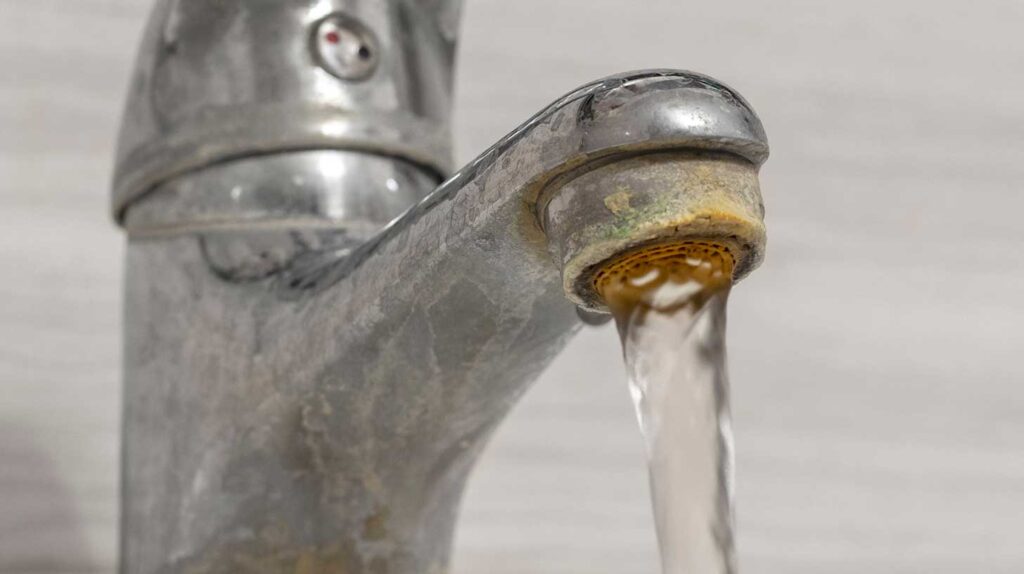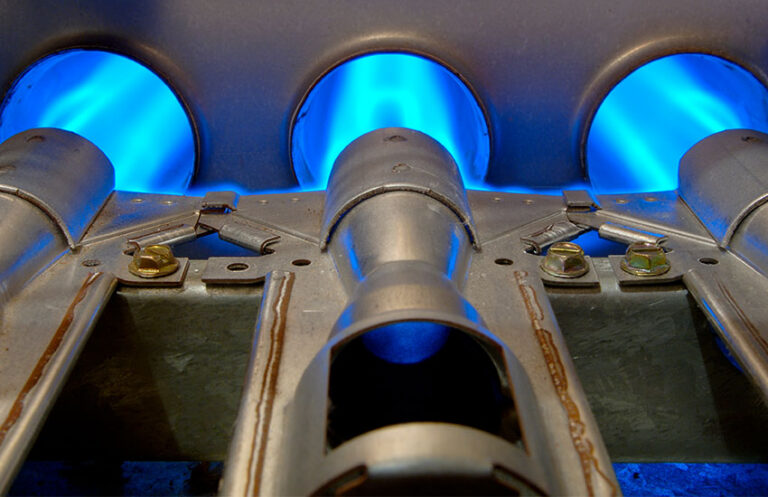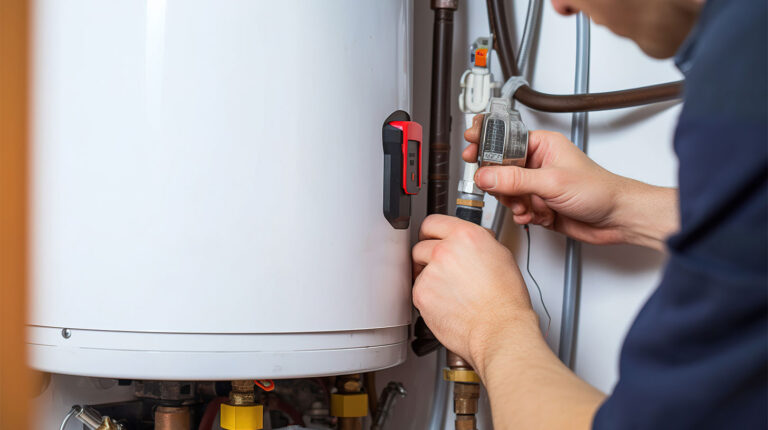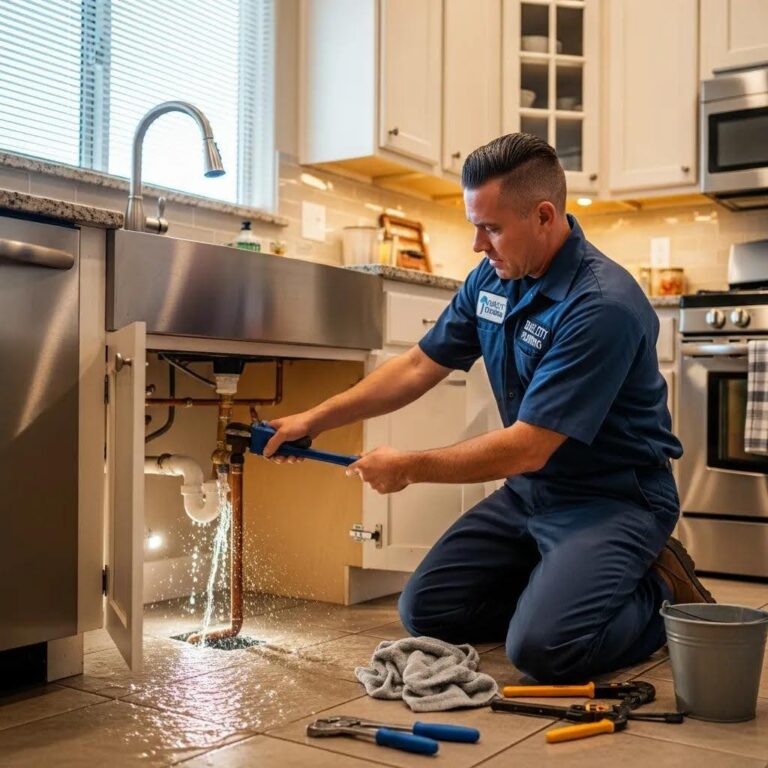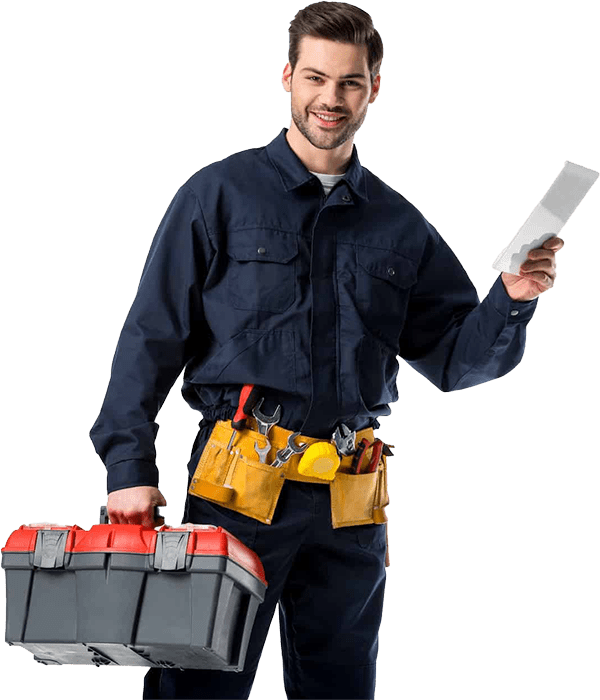If you live in a dry climate—places like the Southwest, Mountain West, or parts of the Midwest—you’ve likely experienced the effects of hard water: white crusty buildup on faucets, cloudy dishes, rough laundry, or water heaters that don’t last as long as they should. Hard water issues are extremely common in arid regions because groundwater contains naturally high mineral levels, especially calcium and magnesium.
In this guide, we’ll break down everything homeowners need to know about hard water problems in dry climates, including what causes hard water, how it impacts plumbing systems, what signs to look for, and the most cost-effective solutions. Whether you’re dealing with scale buildup or deciding if a water softener is worth the investment, this article gives you all the answers you need.
Quick Answer: Why Is Hard Water Worse in Dry Climates?
Hard water tends to be more severe in dry climates because:
- Low rainfall leads to high mineral concentration in groundwater
- Evaporation rates are higher, leaving more minerals behind
- Aquifers naturally contain limestone and calcium-heavy rock
- Municipal water systems often rely on mineral-rich wells
So if you notice stubborn white spots, clogged fixtures, or failing appliances, hard water is likely the cause—and dry climates make it even more aggressive.
What Is Hard Water?
Hard water is simply water that contains high levels of dissolved minerals—primarily calcium (Ca) and magnesium (Mg). These minerals are safe to drink but can wreak havoc on your plumbing system over time.
Hard Water Levels (General Classification)
| Hardness Level | Grains per Gallon (GPG) | Classification |
|---|---|---|
| 0–3 GPG | Soft | Ideal |
| 3–7 GPG | Moderately Hard | Noticeable |
| 7–10 GPG | Hard | Problematic |
| 10+ GPG | Very Hard | Severe issues |
Most dry-climate cities fall between 8–20+ GPG, which is considered hard to extremely hard water.
Why Dry Climates Have More Hard Water
1. Less Rain = Higher Mineral Concentration
Areas with low rainfall don’t get enough water movement to dilute minerals. As water travels through soil and rock, minerals accumulate—and without rain cycles to flush them out, they stay concentrated.
2. Groundwater Sources Are Rich in Limestone
Many dry areas depend on groundwater stored in limestone aquifers. Limestone contains high levels of calcium and magnesium, two major contributors to hardness.
3. Rapid Evaporation Enhances Mineral Buildup
Hot, dry air causes water to evaporate faster—leaving more minerals behind on:
- Faucets
- Shower doors
- Dishware
- Outdoor plumbing fixtures
4. Municipal Systems Often Pump from Deep Wells
When surface water is limited, cities draw from deep underground wells, which contain even more dissolved minerals.
Signs of Hard Water Problems in Your Home
Hard water isn’t always obvious at first, but the signs get more noticeable over time. Here are the most common symptoms homeowners report.
🧼 1. Soap Doesn’t Lather Easily
Hard water makes it difficult for soap and detergent to form suds. This leads to:
- Needing more soap, shampoo, or detergent
- A “squeaky” feel on skin after washing
- Soap scum buildup in sinks and tubs
🚿 2. White Chalky Buildup on Faucets and Showerheads
This is limescale, and it’s one of the biggest red flags of hard water.
It appears as:
- White crust
- Chalky rings around fixtures
- Clogged showerheads
👕 3. Laundry Feels Rough, Stiff, or Faded
Minerals in hard water interfere with detergents and can wear out clothes faster.
🍽 4. Cloudy or Spotty Dishes
Even brand-new dishwashers can’t compensate for mineral-heavy water.
🔥 5. Water Heater Sediment Buildup
This is the most expensive consequence.
Sediment buildup causes:
- Longer heat-up times
- Reduced efficiency
- Higher utility bills
- Premature failure
Tankless systems can also suffer from scale on heat exchangers, reducing lifespan dramatically.
🚰 6. Clogged or Reduced-Flow Faucets
Minerals collect in aerators, supply lines, and valves.
🧴 7. Dry Skin & Hair
Hard water strips natural oils, causing:
- Itchy skin
- Brittle hair
- Accelerated aging of skin
How Hard Water Damages Plumbing Systems
The problem isn’t just cosmetic. Hard water directly affects your plumbing system, usually in ways you won’t notice until repairs are expensive.
1. Pipe Scale & Flow Restriction
Minerals build up inside pipes like cholesterol in arteries.
Effects:
- Slower water flow
- Uneven pressure
- Cold spots in hot water supply
2. Water Heater Element Damage
Minerals coat heating elements, causing overheating and failure.
Both electric and gas water heaters are at risk, but gas models suffer more due to burner scaling.
3. Increased Energy Costs
A scaled water heater can use 20–30% more energy.
4. Fixture Corrosion
Minerals can corrode:
- Faucets
- Valves
- Toilet parts
- Dishwasher components
5. Drain Issues
While hard water doesn’t usually clog drains directly, mineral deposits can trap soap and hair—leading to more frequent blockages.
Testing Your Water Hardness Levels
If you suspect your home has hard water, testing is simple.
Testing Options
- Store-bought strip tests (cheap, fast)
- Digital water hardness meters (accurate)
- Lab testing kits (most precise)
- City water quality reports
- Professional plumber testing
If you’re over 7 GPG, your home is officially in the hard water zone.
Hard Water Solutions: What Homeowners Can Do
Here are the most effective options, from small DIY fixes to full home filtration.
1. Use Vinegar for Surface Scale Removal
Vinegar dissolves mineral deposits on:
- Faucets
- Shower heads
- Glass doors
Simple but temporary.
2. Install Faucet & Shower Filters
These reduce scale in individual fixtures but don’t solve the whole-home issue.
3. Flush Your Water Heater Regularly
Recommended:
- Every 6 months for hard water
- Annually for moderate water
Flushing your water heater regularly prevents sediment buildup.
4. Add a Whole-Home Water Softener (Most Effective Solution)
A water softener:
- Removes calcium & magnesium using sodium or potassium
- Protects your water heater, appliances, and plumbing
- Eliminates scale
- Makes water feel softer
- Improves soap efficiency
- Protects skin & hair
Types of Water Softeners
| Type | How It Works | Best For |
|---|---|---|
| Salt-Based Ion Exchange | Removes minerals with sodium/potassium | Most households |
| Salt-Free Conditioners | Prevents scale but doesn’t remove minerals | Mild hardness |
| Reverse Osmosis Systems | Filters everything including minerals | Drinking water lines |
5. Consider a Tankless Water Heater With Built-In Descaling
Modern tankless units have:
- Scale sensors
- Flush ports
- Descaling cycles
But they still require proper water treatment in hard water areas.
Hard Water Solutions for Dry Climate Homes Specifically
Dry climate homes often use:
- Evaporative swamp coolers
- Solar water heating
- Outdoor plumbing exposed to heat
- Large irrigation systems
These systems become extremely vulnerable to mineral damage.
Recommended Upgrades
- Descaling systems for swamp coolers
- Sediment filters for whole-home entry
- Water softeners for indoor plumbing
- Regular flushing of outdoor systems
- Annual descaling of tankless heaters
This is especially important in areas like Albuquerque, Phoenix, Las Vegas, El Paso, Denver, and Salt Lake City.
Does Hard Water Cost Homeowners Money? (Yes—A Lot)
Here’s what homeowners typically spend because of hard water:
| Issue | Additional Annual Cost |
|---|---|
| Higher energy bills | $120–$300 |
| Premature water heater replacement | $800–$2,000 |
| More soap & cleaning products | $150–$400 |
| Replacing corroded fixtures | $200–$800 |
| Appliance repairs | $100–$500 |
| Clothing wear & tear | $200+ |
Total yearly cost: $400–$1,700
A water softener typically pays for itself in 12–36 months.
Is Hard Water Safe to Drink?
Yes, it’s generally safe for drinking.
But it’s bad for plumbing and appliances.
The real danger is long-term damage to:
- Water heaters
- Dishwashers
- Pipes
- Washing machines
Hard Water Myths (Debunked)
❌ Myth 1: Water softeners add salt to drinking water
False—softened water contains sodium ions, not salt crystals.
❌ Myth 2: Only old homes have hard water problems
False—hard water affects every home connected to mineral-heavy supplies.
❌ Myth 3: Tankless water heaters fix hard water issues
They don’t—they are actually more sensitive to scale.
Frequently Asked Questions About Hard Water in Dry Climates
1. Is hard water worse in hot climates?
Yes—heat increases evaporation and scale buildup.
2. Do water softeners waste water?
Modern softeners are highly efficient and use minimal water.
3. Can I install a softener myself?
It’s possible, but professional installation ensures proper sizing and plumbing.
Conclusion: Hard Water Requires Proactive Care—Especially in Dry Climates
Hard water is one of the most common plumbing issues in dry regions, and without proper treatment, it will damage plumbing, shorten appliance lifespan, and raise energy costs.
Fortunately, solutions are straightforward:
- Install a water softener
- Flush your water heater
- Use scale prevention systems
- Maintain fixtures regularly
Addressing hard water early protects your plumbing for decades.
Local to Albuquerque, NM
If you live in Albuquerque or surrounding areas, 505 Plumbing, Heating & Cooling can help diagnose and fix hard water problems—including water softeners, filtration systems, and water heater solutions.
📞 Call us today at (505) 560-3865
Or schedule service at: https://505plumbing.com/contact/

